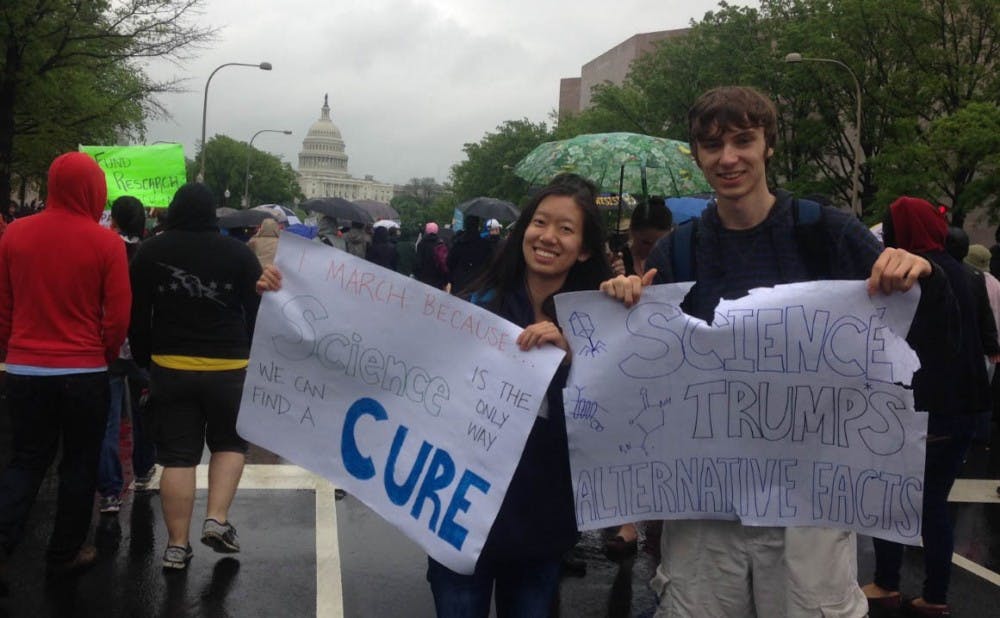Duke students and faculty were among the thousands of scientists who converged in D.C. this weekend for the March for Science.
The demonstration, which included rallies and teach-ins along with a march from the Washington Monument to the Capitol building, was launched in response to rhetoric from President Donald Trump, who has voiced doubt about climate change and the safety of vaccines since he was a presidential candidate. Trump's administration has also proposed drastic budget cuts to the Environmental Protection Agency and the National Institutes of Health.
“As a scientist, I have become increasingly concerned with the diminishing value that our policy-makers and even the public place on science and the shrinking role that science has had in solving society’s problems,” wrote Raphael Valdivia, vice dean for basic science in the School of Medicine, in an email. “I [attended] the march because I want to increase awareness of these issues.”
Valdivia noted that he helped coordinate members of the Duke community to participate in the D.C. march.
When he sent out an email inviting others to join him this weekend, he said he was overwhelmed by the response. More than 100 Duke students, faculty and staff made the trek to D.C., with many more taking part in local marches in North Carolina, he added.
Junior Diane Karloff drove five hours to D.C. with a group of her friends to march Saturday, which she said was a “really special experience” even in the rain.
“It made me excited that other people care about this thing that I care about,” she said.
Karloff also noted that many attendees brought with them clever signs, with sayings like “I’m with her” pointing to an image of the Earth and “less invasions, more equations.” In addition, she saw a woman with a baby who had a sign that said, “I exist because of IVF, thanks science.”
As Karloff took the Metro into the city, she said that she met others going to the march and began talking with them about their work, discovering several people who conducted similar research as her. She also encountered many Duke grads who were passionate about the march.
“Within a ten-foot radius there were eight people, and we all were interconnected somehow, all going to the march with the same purpose,” she said.
First-year Melissa Baldino also attended the march by taking a Megabus from Durham with friends.
As a biology major who loves doing research at Duke, she noted that it frustrates her when people do not acknowledge research or call it “alternative facts.”
“I know past marches have been pretty impactful, so I wanted to be a part of that,” she said.
Although Karloff said she does not believe the march will cause Trump to change his policies, she hopes it generates media attention.
Baldino noted that she thinks the march will make politicians realize that science is unbiased.
“I think it’s really important to remind ourselves that science is as much truth as we possibly have about a subject,” she said.
Valdivia echoed this sentiment, noting that he also wants the march to encourage scientists to become more engaged with public policy affairs.
“I would like it to be an example for younger scientists that engagement with the public and advocacy for science and science education is one of our responsibilities,” he said.
Get The Chronicle straight to your inbox
Signup for our weekly newsletter. Cancel at any time.

